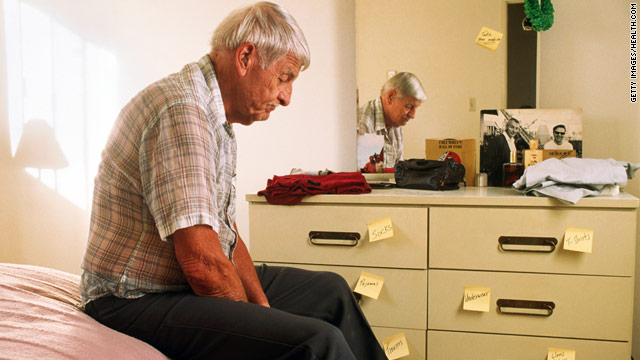 Roughly half of the people who are told they have Alzheimer's disease may in fact have other forms of dementia that produce similar symptoms, according to a new study. Doctors have known for some time that the confusion and memory loss caused by the brain lesions associated with Alzheimer's can also be caused by other types of brain changes, such as tissue damage stemming from strokes. The study suggests that it may be even harder than previously thought to identify the source of dementia while a patient is still alive, says lead researcher Lon White, M.D. Health.com: 25 signs and symptoms of Alzheimer's Disease "There are at least five different kinds of important lesions which can produce a picture that looks like Alzheimer's," says White, a professor of geriatric medicine at the University of Hawaii in Honolulu. "Each of those five kinds of lesions is apparently driven by its own pathologic process, and having one doesn't protect you from having others. All are independent and all are increasing with age." The researchers have since completed another 400 or so autopsies with similar results, and will present their findings in April at the annual meeting of the American Academy of Neurology. Unlike studies published in medical journals, these findings are still preliminary and have yet to be thoroughly vetted by other experts in the field. Health.com: 9 foods that may help save your memory An Alzheimer's misdiagnosis doesn't have immediate consequences for the patient because no treatments exist that can stop the steady progression of the disease. And the drugs that, in some people, help slow Alzheimer's or make it more tolerable appear to work for other types of dementia, White says. Patients and their families can nevertheless benefit from an early and accurate diagnosis. Ruling out other forms of dementia may help relatives plan for future care and determine their own risk for Alzheimer's, for instance. Accurately diagnosing Alzheimer's is even more critical for research on potential treatments. Without knowing precisely who has Alzheimer's, pharmaceutical companies that have been developing new drugs "are not going to be able to see a true assessment of how effective their drug is," White says. Health.com: Should I take medicine for Alzheimer's disease? Some promising advances in diagnosis have been made recently. A study published last year found that spinal fluid tests can predict Alzheimer's with a high degree of accuracy, and the Food and Drug Administration is currently weighing the approval of a brain scan that uses dye to highlight the plaques characteristic of Alzheimer's. The reliability of these methods needs to be confirmed, however. "Everybody knows we need to do a better job of diagnosing," says Maria Carrillo, Ph.D., the senior director of medical and scientific relations at the Alzheimer's Association, a research and advocacy organization based in Chicago. "We are all trying to make that diagnosis better, earlier, faster. All of those things are currently under way in terms of research study." | |
Half of Alzheimer's cases misdiagnosed – The Chart - CNN.com Blogs
Wednesday, February 23, 2011
Subscribe to:
Post Comments (Atom)















1 comments:
alzheimers care home that follow the philosophy of person-centred care aim to bring out the best in the people with dementia who live there. Each home has its own written philosophy, or mission statement, based on this concept.
Post a Comment